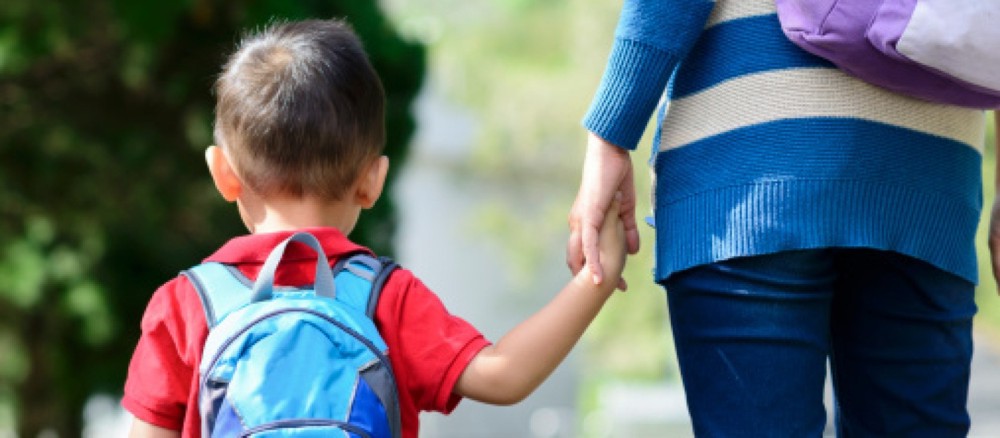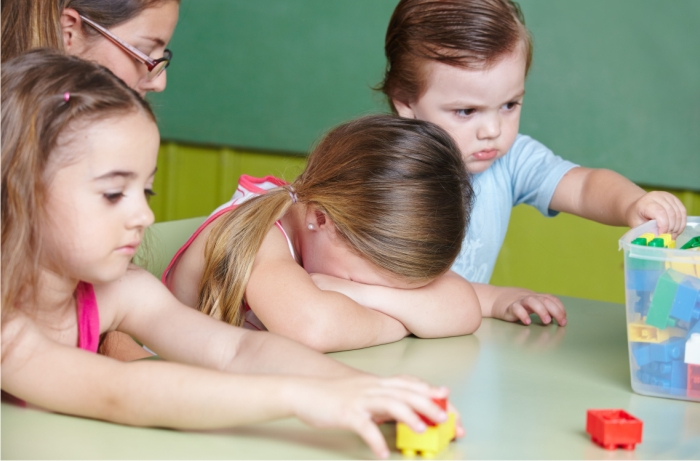
“It is of utmost importance to talk with the child about what their routines will be throughout the year,
“In this way, he too can get organized.”
The time for vacations is coming to an end, when schedules are more flexible and there is more time spent with family or friends; but it is time to get back to the routine.
Feared by some and sought after by many others, routine means set schedules, less time at home, more individual activities and fewer hours with the family; but it is important to generate security and confidence by giving the child predictability. It is important that these changes occur gradually and not overnight. A good option is to introduce, between one week and ten days before starting classes, the routines that will be part of the child's daily life during the school year. For example, regarding sleep, the biological clock will have to get used to the times of going to bed and getting up. Since the child is not yet attending school, the mornings can be used to do some recreational physical activity and/or revisit content from the previous year that is of interest to the child, helping him to start the year with more confidence.
It is of utmost importance to dialogue Talk to your child about what their routines will be throughout the year, so they can also get organized. If it is the first time they are attending school, it is a good idea to talk and share trust about how important the school we choose is to us and that it will be a place where he or she will feel comfortable. This is key, since, to the extent that parents trust the school and the teaching staff, the child will perceive and feel the same way. As parents, it is difficult not to have ambivalent feelings during the adaptation period to a new school, to a new stage. In order not to transmit anguish or anxiety to our child, we must maintain a good dialogue and communication with the institution.
What do we mean when we talk about the adaptation period?
This is the process that a child goes through until he or she feels socially and emotionally comfortable at school. It can last from a few days or weeks to months in some cases; we must respect each child's pace and be attentive in our attitude and support as parents.
According to some authors, this process has three phases:

- Protest: It can last a week or more. It manifests itself with crying, expressions of displeasure or feelings of loneliness; regressive behaviors, anxiety, inhibited behaviors and/or tantrums. We should not minimize what the child feels, let's look for reassure him talking to him, telling him that he will feel more comfortable in a short time.
- Ambivalence: There are moments of protest, where crying and tantrums may appear, as well as moments of enjoyment.
- Adaptation: Over the first few months, the child will gradually adapt to the physical space, the environment, the educators and his classmates. He will happily participate in the activities and interact with his peers, creating new bonds. Little by little, he will take ownership of the school space, experiencing it as his “second home”.
Here are some tips for this adaptation period:
- Demonstrate confidence and trust when leaving the child at the institution.
- Avoid long goodbyes. We can talk about school at home, rather than at the front door, where we arrive determined that everything discussed will be carried out.
- Respect arrival and departure times. The child will be waiting to be picked up at the previously agreed time. It can be very helpful to explain the schedules through activities that you will do at school, for example: “I will pick you up after snack.”
- It is important that attendance is regular, otherwise it can delay this adaptation process.
- During this period, it is ideal for the parents to drop off and pick up the child. If this is not possible, it is a good idea to have a clear idea of who will pick him up each day.
- Adaptation to school transport should also be gradual, if possible once the child has adapted to the school environment to a certain extent.

- At home we can help him by not doing tasks for him that he can do alone. In this way he will gain confidence and grow in autonomy, key skills during the adaptation process.
- Talk to your child about his or her day at school. Reinforce and convey how happy you are that he or she attends school.
- Have a lot patience During this stage, it may seem that everything is going well and then suddenly there may be a setback. This is most common after the first vacation (Easter) when behaviors that had already been overcome or that had never occurred before may reappear.
Taking all this into account and respecting the schedules set by the school for this adaptation process, children will be able to go through it in a healthy way. It is important that if there is any concern, we clear it up through the means provided by the institution. (notebook of communications, interviews, etc.). It is essential that as parents we channel all doubts with the institution and not with the child.
Finally, for those who wish to continue to delve deeper into the subject, we suggest you visit the following pages where you will find more ideas or information that you can turn to:
→ Helping children return to school
→ How to achieve a happy and successful return to school
Good luck and good luck in this stage!
Lic. Lucia Scremini